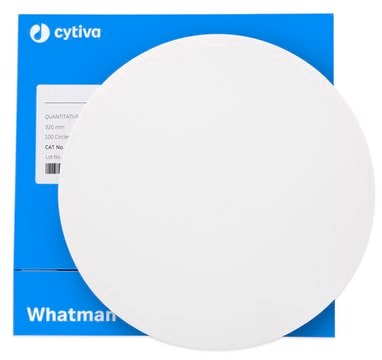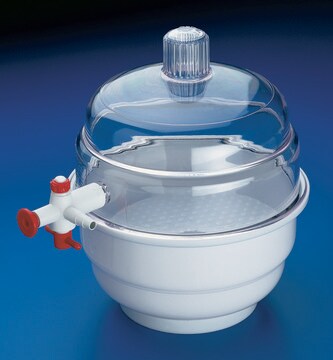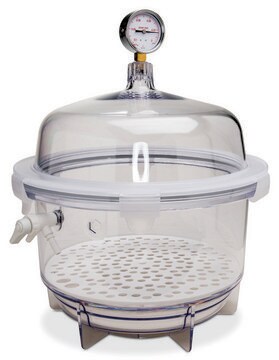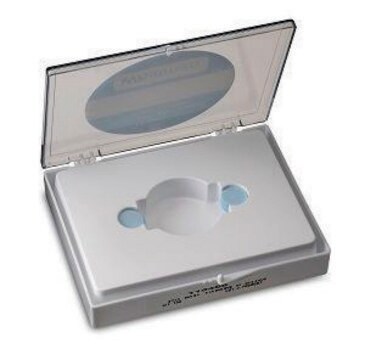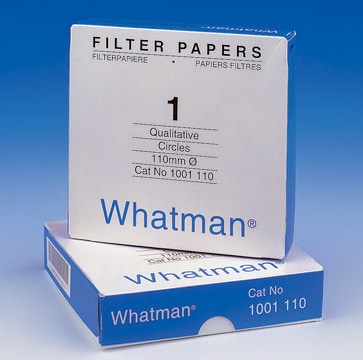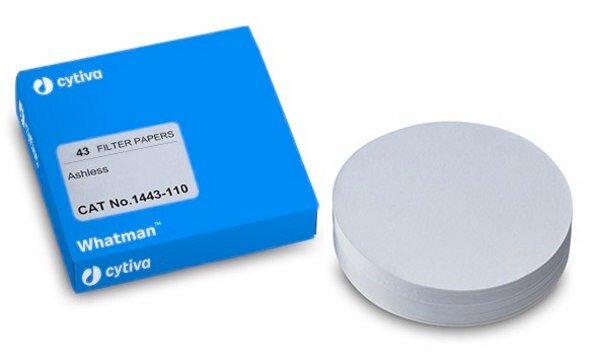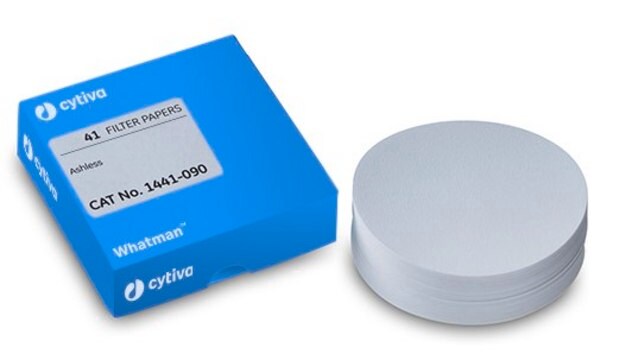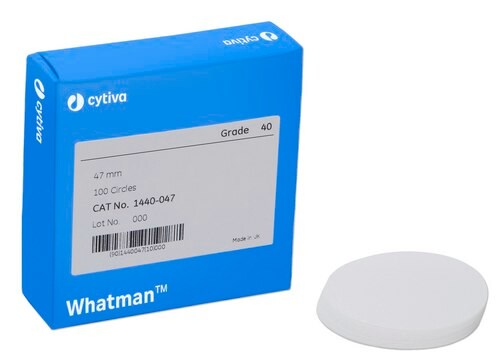WHA14426551
Whatman® quantitative filter paper, ashless, Grade 42
sheets, W × L 25.4 mm × 90 mm, pack of 100
Synonim(y):
Z752703
About This Item
Polecane produkty
Materiały
cellulose
sheets
Właściwości
Grade 42
opakowanie
pack of 100
producent / nazwa handlowa
Whatman 1442-6551
Whatman Article No. 28418050 (US reference)
Parametry
0.40 psi wet burst
1870 sec/100 mL speed (Herzberg)
szer. × dł.
25.4 mm × 90 mm
grubość
200 μm
popiół
≤0.007%
wielkość porów
2.5 μm (Particle retention)
gramatura
100 g/m2
Szukasz podobnych produktów? Odwiedź Przewodnik dotyczący porównywania produktów
Powiązane kategorie
Opis ogólny
Whatman Grade 42 quantitative papers from Cytiva business are designed for retention of extremely small particles. A common example is use of Grade 42 as a calcium carbonate filter for analysis in the cement industry.
Other typical precipitates for gravimetric analysis include barium sulfate and metastannic acid for use in glazes, coatings, and pigments. The high purity of Cytiva′s Grade 42 filters also makes them suitable for processes that require ashing.
Zastosowanie
- Analiza środowiskowa: analiza filtracji gleby, podczas oddzielania substancji stałych od ekstraktów wodnych
- Zatrzymywanie małych cząstek
- Zbierania pierwiastków śladowych i radionuklidów z atmosfery
Cechy i korzyści
- Bez popiołu: maksymalnie 0,007% popiołu
- Drobna (2,5 µm) nominalna retencja cząstek, eliminuje duże cząstki, które w przeciwnym razie mogłyby zakłócać działanie wrażliwych instrumentów
- Prędkość filtracji Herzberga 1870 s
- Powszechnie stosowany jako filtr węglanu wapnia
- Szczególnie nadaje się do analizy grawimetrycznej
Inne uwagi
Informacje prawne
Wybierz jedną z najnowszych wersji:
Certyfikaty analizy (CoA)
It looks like we've run into a problem, but you can still download Certificates of Analysis from our Dokumenty section.
Proszę o kontakt, jeśli potrzebna jest pomoc Obsługa Klienta
Masz już ten produkt?
Dokumenty związane z niedawno zakupionymi produktami zostały zamieszczone w Bibliotece dokumentów.
Klienci oglądali również te produkty
Nasz zespół naukowców ma doświadczenie we wszystkich obszarach badań, w tym w naukach przyrodniczych, materiałoznawstwie, syntezie chemicznej, chromatografii, analityce i wielu innych dziedzinach.
Skontaktuj się z zespołem ds. pomocy technicznej